Ways to Save
Appliance Tips:
Some appliances run around the clock while others go to work when we need them to. Learn how your appliances operate for maximum efficiency.
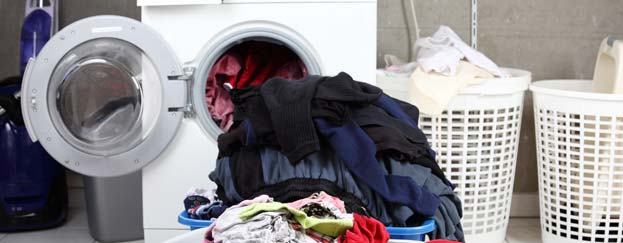
Washer
- Wash clothes in cold water. Use warm or hot water only for very dirty loads. Most of the electricity use comes from heating the water.
- Use cold water always for the rinse.
- Aim to run full laundry loads. A small load uses the same amount of energy as a large load.
- Adjust the water level to match the load size if you must run a small load.
- Avoid using too much soap, which can make your washer work harder and may require an additional cycle.
- Use bath towels at least twice before washing them.
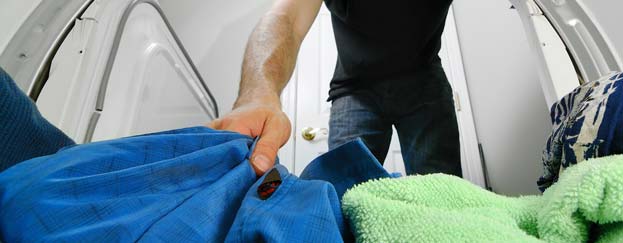
Dryer
- Determine the level of heat you need (high, medium, low) and the necessary amount of drying time.
- Clean the dryer's lint filter after every use to maximize airflow and efficiency.
- Remove lint from dryer vents.
- Make sure the dryer vent hose is not kinked, clogged or blocked.
- Use the dryer's moisture sensor so the cycle ends once the load is dry.
- Dry consecutive loads to harvest heat remaining in dryer from last load.
- Avoid running the dryer during the heat of the day in hot weather.
- Consider using a "solar-powered" clothes dryer: an old fashioned clothes line.
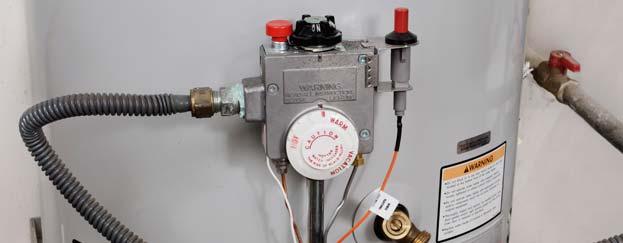
Water Heater
- Set water heater temperature no higher than 120 degrees.
- Install a water heater blanket or wrap to decrease heat loss, especially if the unit is in an unconditioned space.
- Purchase a heat pump water heater or another energy-efficient unit to use less energy.
- Install low-flow shower heads to use less water. Limit shower length to 5-7 minutes.
- Turn off water while you are shaving or brushing your teeth.
- Fix dripping water faucets.
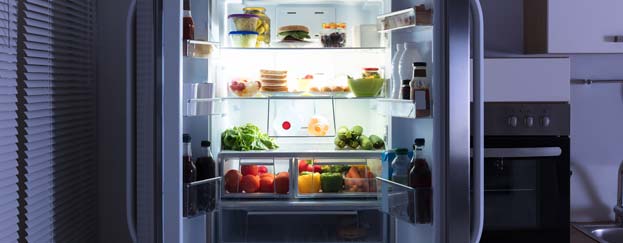
Refrigerator/Freezer
- Set the refrigerator temperature to 40 degrees or below.
- Set freezer temperature to 0 degrees.
- Open refrigerator and freezer doors only as long as it takes to get what you need. Holding the doors open or opening and closing them several times uses more energy.
- Clean refrigerator coils annually and keep them unobstructed.
- Replace an old refrigerator with a new, energy-efficient appliance. Consider the kilowatt-hour use per month, amount of insulation, and size you need before buying.
- Allow hot foods to cool outside the refrigerator or freezer before storing them.
- Do not keep a freezer in your garage. The unit has to work harder against the high outdoor temperatures.
- Make sure all doors seal properly. Clean door gaskets.
- Keep your refrigerator/freezer away from direct sunlight and heating elements.
- Don't overload your refrigerator or freezer. Place foods on shelves so that they do not touch.
- Cover all liquids in the refrigerator. If you don't, moisture from the liquid can be drawn into the air and make your unit work harder.
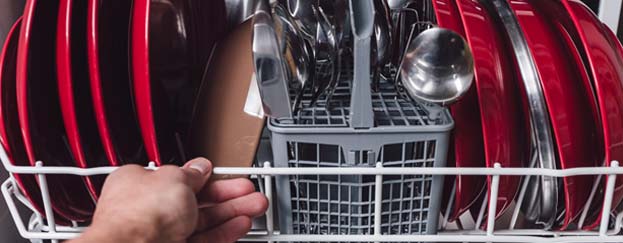
Dishwasher
- Wash full loads without overloading your dishwasher. The same amount of energy and water is used for small or large amounts of dishes.
- Select the shortest washing cycle to clean your dishes, and use the dishwasher's air dry cycle instead of heat dry to use less energy.
- Start your dishwasher at night when the weather is hot.
- Think before you wash a lot of dishes by hand. The hot water and energy it takes to wash and rinse by hand three times is more than what it takes to run one dishwasher load.
- Use the appropriate amount of detergent for your load.
- Scrape excess food from dishes instead of rinsing them. Rinse with cold water only if you will not be using the dishwasher immediately.
- Check out energy-efficient features, such as half-load and rinse only cycles, when buying a new dishwasher.

Comfort Advantage is a recognized standard for energy-efficient construction and quality products for the home and business. The benefits of Comfort Advantage are promoted by electric cooperatives who provide electric service to more than 400,000 Mississippi homes and businesses.

